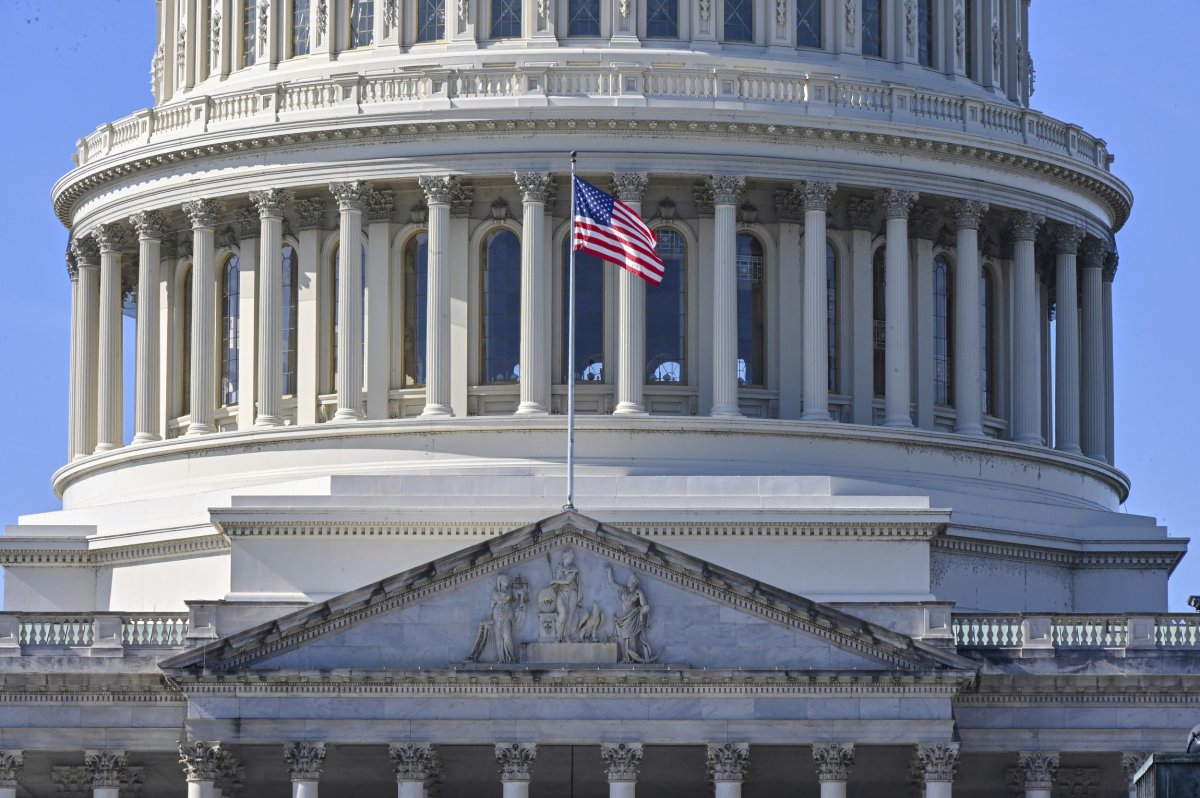A wave of new laws across the United States come into effect on January 1, impacting areas ranging from social media and data privacy to gun safety and artificial intelligence.
Here's a look at some of the most notable state laws coming into force.

Abortion
The issue of abortion and reproductive rights was a major one in the election. Donald Trump, who took credit for the Supreme Court's overturning of Roe v. Wade in 2022, removing the constitutional right to an abortion in the country, has repeatedly said that his position is to let states decide their own abortion laws.
Accordingly, Delaware and New York are passing laws to further protect a woman's right to get an abortion.
In New York, the Equal Rights Amendment, which passed in 2024, has been added to the state constitution as of January 1. The amendment expands anti-discrimination protections to include terms such as gender identity, pregnancy outcomes and reproductive health care. It enshrines abortion rights and other civil liberties as constitutional protections.
In Delaware, all health insurers must now cover abortion-related costs up to $750 per individual, according to the Associated Press. Employers with religious objections can opt out if they provide timely notice, though exemptions don't apply in life-threatening situations.
Social Media
Several states are introducing new laws in 2025 to regulate social media platforms and protect children online.
In Florida, a measure prevents children from having social media accounts. Children under 14 will not be allowed to create or maintain social media accounts at all, while teens aged 14 and 15 will require parental or guardian consent to access social media platforms. The law does not name any specific platform, but says it applies to any that promote "infinite scrolling," display reaction metrics such as likes and shares, feature auto-play videos and have live-streaming and push notifications.
Tennessee's "Protecting Children from Social Media Act" will require social media platforms to verify users' ages starting from January 1. Platforms hosting sexual content must ensure viewers are 18 or older. Parents will need to provide consent for minors under 18 to create accounts. Governor Bill Lee said the legislation would "empower" parents, though it faces a federal legal challenge for potential First Amendment violations.
California has introduced two measures aimed at protecting children who are making money online. One law mandates parents who monetize their children's online presence to allocate a portion of the earnings to the minors, and another expands an existing law protecting child stars to include child content creators on digital platforms, requiring trust accounts and detailed records of earnings and screen time.
Gun Safety
A raft of new gun safety laws are coming into effect in several states. With school shootings still regularly occurring, the debate on how to reduce gun violence while upholding the Second Amendment continues to divide the nation, with some states imposing restrictions on gun owners, and others giving them more rights.
A new law in New Hampshire allows employees to store guns and ammunition in locked vehicles on their employer's property starting from January 1. Employers can't take adverse actions against employees for this practice, but firearms must remain out of sight. Employers retain the right to prohibit firearms elsewhere on their premises.
Colorado will require gun owners to secure firearms in locked containers when leaving them in unattended vehicles, and violators face a $500 fine. Lawmakers hope the law will reduce gun thefts, as two-thirds of firearms stolen in Denver last year came from vehicles. Another new law prohibits individuals under temporary protective orders for domestic violence from possessing firearms, with mandatory relinquishment within 24 hours.
Minnesota will ban guns with binary triggers, which enable firearms to fire on both the pull and release of the trigger. The ban follows a 2024 shooting incident in Burnsville involving such a device.
Data Privacy
Texas will implement stricter online data privacy regulations, amid an ongoing national debate about the way large tech companies like Meta, which owns Facebook and Instagram, and Alphabet, which owns Google, make most of their money: by surveilling users' sensitive personal data without their knowledge and using that data to sell targeted placements to third party advertisers.
The Texas Data Privacy and Security Act will take effect in January, granting consumers more control over their personal data. Businesses must respect unified mechanisms to opt-out of certain kinds of tracking or surveillance.
Companies failing to comply with transparency or consent requirements may face civil penalties.
Artificial Intelligence
California is enacting two laws to safeguard individuals from unauthorized AI-generated digital replicas of their voice and likeness, as AI deepfake technology continues to advance.
One law requires contracts for digital replica use to include specific usage descriptions, with legal counsel or union representation for the individual. Another extends protections to posthumous digital replicas, allowing estates to control their use for up to 70 years. These laws aim to protect personal likenesses from misuse.
Marijuana
Medical marijuana will become legal in Kentucky in 2025, but smoking the plant remains prohibited. Users can access raw plant material, but must use it in non-combustible forms like vaping. Violating these restrictions could result in license suspension or legal penalties. Public consumption and growing marijuana at home are also banned.



















:quality(85):upscale()/2024/04/24/878/n/3019466/36c5693c662965c5d1ce91.72473705_.jpg)
 English (US) ·
English (US) ·